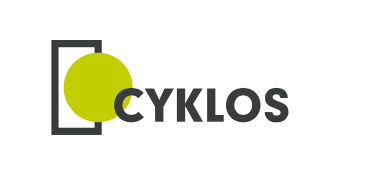IFLA
WORLD
CONGRESS
28-30 september
2023
We call it:
Emergent Interaction

Student design competition
The submission for 2023 has closed
and the winners have been contacted
As part of the key activities of the 59th IFLA World Congress, a students’ competition has been organised in order to receive, compare, share and advance landscape planning, design and management ideas from across the world. The congress’ main theme is Emergent Interaction with the subthemes Leave No One Behind, Beyond Borders, and Act Local-Think Global. It aims to explore new forms of collective problem solving, borderless strategies and possible networks of ideas and cooperation while at the same time keeping the issues of climate change, social inequality and biodiversity-loss at the forefront of the congress.
Further, the theme looks at possibilities of connecting local action with global strategies and facilitation of interaction across national and institutional boundaries, between citizens and governments; Interaction between academic institutions and private practices, between political frameworks and planetary boundaries; between culture and nature, between the digital and the physical, between cities and ecologies. Perhaps by exploring the possibilities of such new cooperative frameworks together will allow us to mobilize our collective ingenuity and professional capabilities towards global action in order to confront the challenges facing us. Possible outcomes will be a discovery of uses of these new modes of interaction for our profession, new tools and applications that we can expect on the theoretical, strategic and operational levels of Landscape Architecture. In the end, we shall learn from each other as a global network of landscape architects, urban planners, designers and professionals in the built environment, representing a wide diversity of nations, traditions, practices and cultures.
INSTRUCTIONS
The competition brief is developed with this theme in mind, with a focus on the subtheme Act Local-Think Global. This subtheme aims at stressing on proposals that address global challenges with solutions that are locally sourced for different local contexts. This also includes opportunities to cross-fertilize traditional landscape approaches with critical tools, knowledge and concepts provided by different professional fields.
The competition has three categories of projects which include landscape planning, landscape design and applied research. The expected competition output, in each category, should be aligned to the subtheme Act-Local, Think Global.
1: Landscape planning
Rapid urbanisation, agricultural expansion and other anthropogenic activities have exerted pressure on land resources leading to the degradation of natural ecosystems and climate change. Landscape planning, both as a process and a practice, minimises adverse effects on these resources. Landscape planning, therefore, provides the tools and procedures necessary for sustainable use of physical, biological and cultural resources, most of which are unique and scarce. The entries should include, for example, regional planning maps, as the focus.
2: Landscape design
Under this category, students can submit work for Landscape Architecture projects that are site-specific and address relevant questions in the Landscape field. This category aims to place emphasis on design formulation techniques, narratives, methodologies together with detailed studies of the associated subject matter for better curated experiences and taking relevant sensitive approaches.
The project topics could be, but not limited to, public / private projects of any kind and varying scales and landscape art or installations. The entries should emphasize on among others, the contextual site analysis of the physical elements, such as built / natural, and social, historical and cultural influences, and environmental factors, ecology and biodiversity.
3: Applied research
Research topics can range from life sciences, ecology, sociology, to human behaviour and socio-psychology. There is a great scope for applying proven research theories into scientific-based and/or evidence-based designs. Under this competition category, students can submit scientific-based and/or evidence-based design projects related to the competition theme. This award will distinguish works that translate recognized research from the landscape architecture field into creative design solutions. A project may also be documented and assessed, providing information regarding how “successful” its design is in meeting the design aims. That is, providing quantifiable information and lessons that can be applied in similar sites and can perhaps also act as a case study. The focus should be on the extent of realisation of environmental, social and economic benefits. The expectation is a presentation of such case studies of existing projects; drawings may include original drawings of the project and analytical drawings of the current use
GENERAL SUBMISSION REQUIREMENTS AND SCOPE
- All entries should include identification and description of a problem or assignment.
- All entries should include a proposed solution based on the topic of the chosen category.
- The entries should emphasise the following factors but not limited to contextual landscape analysis of the biophysical elements such as built /natural, social factors, historical and cultural influences, environmental factors, ecology, biodiversity.
- Students are free to select the context and site of their projects.
- Students are free to select the scale of their project that is appropriate in conveying their planning strategies.
- Students are free to select any topic that needs an analytical planning approach.
- All entries, regardless category, should be aligned to the congress subtheme Act Local, Think Global.
DETAILED SUBMISSION REQUIREMENTS
1. ENTRY FORM (download below). Fill in and save as an un-editable PDF. As entry number, fill in the receipt number from the payment of the entry fee.
2. PROPOSAL OF 2 POSTERS INCLUDING:
- PROJECT STATEMENT: 150 words or less. The submission must mention the title for the work that accurately represents the thought process of the project. The project statement shall clearly state the goals and objectives of the project. A brief explanation should be given on the analysis outcome and methodology used for the planning. The text must be in English, unjustified, left-aligned, and double spaced, in Times New Roman, font 12.
- PROJECT NARRATIVE: 300 words or less. Define what kinds of data were collected and analysed. Explain the methodologies used in data collection and analysis. Describe how the data analysis was integrated with the planning guidelines. The text must be in English, unjustified, left-aligned, and double spaced, in Times New Roman, font 12.
- POSTERS (2 panels): 250 words excluding legend, notes, captions, and citations. The panels must include the project title, research methodology with an illustrated link between the analytical findings and design outcome. Provide a range of drawings at various scales and diagrams that are appropriate for illustrating the project/guidelines. The project statement and project narrative must be incorporated into the first panel of posters.
All submission documents must be saved as a PDF and include the project title and the entry number, but with no mention of the project team or school. Entries shall be referred to by number to ensure anonymity during the judging. When printed at 100% size, the final product must comprise a maximum of two (2) A1 posters (each one measuring 841 mm x 594 mm).
Projects consisting of many posters or of orientation other than what is specified in brief (2 posters, portrait orientation) will be disqualified. Any written text on the panel must be in English, except for a complementary translation of the project title into a second language. Projects with the description or written texts in a language other than English or exceeding the maximum words shall be disqualified. The entrants must ensure that all research data, images, photographs, and other material taken from other sources are correctly attributed. Source credits are not included in the word count. Digital files PDF files of posters must have a 300dpi resolution, and the size of the total submitted zip-file shall be a maximum size of 200 MB. Larger files will not be accepted. It is the responsibility of the authors/teams to guarantee that the final images and files are in the size and resolution adequate to their reading.
ENTRY FEE
To participate in the competition an entry fee of 200 SEK (20 USD) shall be paid per proposal. The payment is required before the proposal is submitted and the receipt number (2 digits) given shall be stated in the entry form as part of the submission.
Click on the link below to pay the entry fee.
NOTE: Be sure to check your spam/trash inbox if you don´t receive the receipt.
SUBMISSION
SUBMIT: 1 ZIP-FILE OF MAX 200 MB named PROJECT TITLE_ENTRY NUMBER (same as reciept number from payment).
The zipfile should contain one entry form and one combined PDF with the proposal of 2 A1 poster panels. Name the files: ENTRY FORM_PROJECT TITLE_ENTRY NUMBER and POSTERS_PROJECT TITLE_ENTRY NUMBER
The submission has closed
TIMELINE
Submission deadline: 31 May 2023 at 20.00 hours (GMT)
Winner notification: The winners have now been contacted by e-mail
Award ceremony: 29 September at IFLA World Congress (Location Stockholm or Nairobi to be announced)
ELIGIBILITY
The competition is open to all enrolled diploma, undergraduate, and graduate students of Landscape Architecture, or studying landscape architecture in university programs not specifically identified as Landscape Architecture. Students from related fields participate as part of a team lead by a landscape architecture student, however not as a single individual. Broad interdisciplinary submissions are welcomed; however, the team must be headed by a landscape architecture student. Both individual and group submissions will be accepted, and for each student or group, only one entry is permitted. Students must be enrolled in a program at the time of the competition’s judging to be eligible. The number of members in each participating group shall not exceed five (5). Professional collaborators and associates of jury members, and their relatives up to the third degree, may not enter the competition. Students are prohibited from contacting any member of the jury prior to or during the competition process. Please direct any inquiries to info@ifla2023.com
JUDGING CRITERIA
The submissions will be judged based on the following criteria:
- Relevance of project to the competition theme and sub-themes.
- Extent of realisation of project goals; this is how well the proposal address the challenges of the selected project.
- Innovative approaches to landscape planning/landscape design/ applied research.
- Adherence to the landscape planning methodology; how well the proposal proves that landscape architecture methodology can meet the challenges of the project.
- Clarity of presentation
AWARDS
To be announced shortly
JURY
The jury members are selected by the IFLA Competitions Committee and will be recognized after the competition.
EXHIBITION AND PUBLICATION
During the judging period, the competition proposals may be exhibited anonymously by the organizer. The jury’s verdict will be published in connection with the publication of the competition results. The results of the competition will be published on the organizers’ websites. IFLA and the organizer have the right to publish all competition proposals on their websites.
OWNERSHIP, USUFRUCT AND COPYRIGHT
The promoter holds the material ownership rights to the competition proposals. The proposers hold the copyright and retain the right to use their proposals. The organizers (IFLA, AAK, Architects Sweden) have the right to publish the proposals in printed form and digitally and for exhibitions without special compensation to the proposers. All publication after the breach of anonymity will take place with the name of the proposer, before that with the motto of the proposal.
SPONSOR
The 59 th IFLA Student Design Competition is sponsored by Group Han Associate.



















